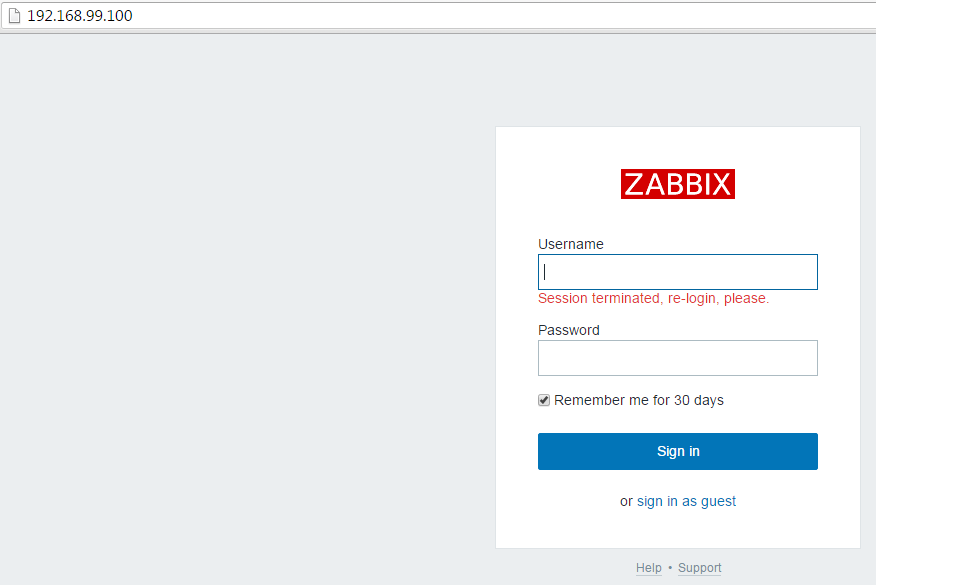Recently I’ve been involved in a feasibility study for a project about monitoring of multiple large data center.
Avoiding further details, I identified a useful tool to kick off a custom solution development: Zabbix.
The first problem is: I never used Zabbix and I am not sure it is the right tool for the purpose.
The second problem is even worst: in order to play with Zabbix I need at least of nginx, php, mybash, java, CentOS etc. Hence a complete environment I do not have right now.
So what I need is a quick setup of Zabbix on my local machine and being able to evaluate Zabbix as soon as possible.
How to solve this problem? EASY! With Docker!
Precondition: I have a full running docker-machine on my laptop, with Docker toolbox.
First thing to check: There is an entry in Docker Hub for Zabbix? Yes!
Second step, let’s check if there is a .yml file read to launch. Well, if you read the doc of Zabbix’s DockerHub entry, it is quite easy.
You can find it here: Yes! Zabbix-docker-github-repo
So the full instructions are the following:
Start your docker console (Docker Quickstart Terminal on wondows hosts).
mkdir zabbix-nico
cd zabbix-nicoClone the zabbix-docker repo:
git clone https://github.com/zabbix/zabbix-community-docker.git
cd Dockerfile/zabbix-3.0Build your image
docker build -t zabbix_nico .where zabbix_nico is the name of the docker image.
Start with docker compose:
docker-compose.exe upThat’s all! Your zabbix local environment is up & runnnig. Oh well, you would like to see if it is working. Ok, let’s check the ip address of your machine
docker-machine ip default
192.168.99.100default is the name of my machine. now point your browser to: http://192.168.99.100/ et voilà!

In short: this is my better experience with docker: rapid prototyping and a ready-to-go dev environment.

